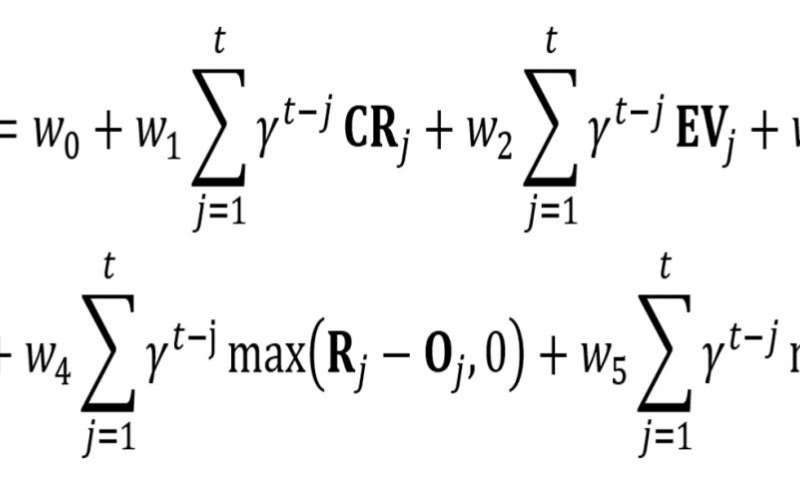Contents
- Introduction
- Preface
- Overview
- Relief Valve
- LECTURE 1: Why We Are In The Dark About Money
- LECTURE 2: The Con
- LECTURE 3: The Vatican-Central to the Origins of Money & Power
- LECTURE 4: London The Corporation Origins of Opium Drug Smuggling
- LECTURE 5: U.S. Pirates, Boston Brahmins Opium Drug Smugglers
- LECTURE 6: The Shady Origins Of The Federal Reserve
- LECTURE 7: How The Rich Protect Their Money
- LECTURE 8: How To Protect Your Money From The 1% Predators
- LECTURE 9: Final Thoughts
SO IN CONCLUSION: BE CHEERFUL, ENJOY YOUR LIFE'

When we say, “Damn, watch out, Mark Manson just don’t give a fuck,” we don’t mean that Mark Manson doesn’t care about anything; on the contrary, what we mean is that Mark Manson doesn’t care about adversity in the face of his goals, he doesn’t care about pissing some people off to do what he feels is right or important or noble.
They say “Fuck it,” not to everything in life, but rather they say “Fuck it” to everything unimportant in life. They reserve their fucks for what truly fucking matters. And because of that, because they reserve their fucks for only the big things, the important things, people give a fuck about them in return.

of Success is the
Happiness you have
doing what you do!
2,400-Year-Old Mosaic
FROM TURKEY SAYS
'Be Cheerful, Enjoy Your Life'
IT IS GREAT ADVICE!
- This is your one and only life.
- Happiness is about experiences.
- Health is everything! as are relationships, both love and friendship.
- You live long enough and you know this.
- Without others, you've got nothing.
- Don't let the little things slide.
Life is only about the little things. Pay attention to the details. They'll help you crack the code. Not everything is good. Not everything is worthwhile. Not everyone makes it.
New is irrelevant. It's what lasts that counts.
- Don't be afraid to change direction, just because you've invested in the path you're on.
- If you never feel uncomfortable, you're not taking any risk.
- The older you get the harder it gets because you lose your optimism and you see how hard it is to accomplish anything.
The Science of Happiness
[... Scientists say they can actually measure happiness. Neuroscientists are measuring pleasure. They suggest that happiness is more than a vague concept or mood; it is real.
 What makes us happy?
What makes us happy?
According to psychologist Professor Ed Diener there is no one key to happiness but a set of ingredients that are vital.
- First, family and friends are crucial - the wider and deeper the relationships with those around you the better.
- It is even suggested that friendship can ward off germs. Our brains control many of the mechanisms in our bodies which are responsible for disease.
- Just as stress can trigger ill health, it is thought that friendship and happiness can have a protective effect. According to happiness research, friendship has a much bigger effect on average on happiness than a typical person's income itself.
- {England} One economist, Professor Oswald at Warwick University, has a formula to work out how much extra cash we would need to make up for not having friends. The answer is 50,000.
- Marriage also seems to be very important. According to research the effect of marriage adds an average seven years to the life of a man and something like four for a woman.
- The second vital ingredient is having meaning in life, a belief in something bigger than yourself - from religion, spirituality or a philosophy of life.
- The third element is having goals embedded in your long term values that you're working for, but also that you find enjoyable.
What it takes
to be happy
Psychologists argue that we need to find fulfillment through having goals that are interesting to work on and which use our strengths and abilities.
There are 5 Paths to Happiness What it takes to be happy
MEASURING HAPPINESSDID YOU KNOW THERE IS A MISERY INDEX?
2016 How money changes us, and not for the good
http://www.reuters.com/article/idUSKCN0VP1QQ
NYT $$ But Will It Make You Happy? August 7, 2010
2016 Americans are miserable—especially Republicans.
Peter Atwater of Financial Insyghts explains why and how this is contributing to the rise of Donald Trump, and to a lesser extent to Bernie Sanders. There's also a warning here for anyone invested in the stock market.
There is an actual "Misery Index"?
Economists have developed a single number that attempts to capture how unhappy a country is, and it has a great track record of predicting U.S. presidential elections. The average republican and democratic voter least educated based is pissed off - sufffers suicide, alcholism, no confidence in making money.
SoundCloud: 25: A Lot of Americans Are Miserable, and It's Swaying The Election by Bloomberg
Richer But No Happier
Happiness researchers have been monitoring people's life satisfaction for decades. Yet despite all the massive increase in our wealth in the last 50 years our levels of happiness have not increased. "Standard of living has increased dramatically and happiness has increased not at all, and in some cases has diminished slightly," said Professor Daniel Kahneman of the University of Princeton.
"THERE IS A LOT OF EVIDENCE THAT BEING RICHER ISN'T MAKING US HAPPIER"
Scientists think they know the reason why we do not feel happier despite all the extra money and material things we can buy.
- First, it is thought we adapt to pleasure. We go for things which give us short bursts of pleasure whether it is a chocolate bar or buying a new car.But it quickly wears off.
- You can't take a grouch and make him giggle all the time Professor Martin Seligman, University of Pennsylvania
- Second, its thought that we tend to see our life as judged against other people.
- We compare our lot against others. Richer people do get happier when they compare themselves against poorer people, but poorer people are less happy if they compare up.
- The good news is that we can choose how much and who we compare ourselves with and about what, and researchers suggest we adapt less quickly to more meaningful things such as friendship and life goals.
RECOGNIZE AND PROTECT YOURSELF FROM PREDATORS
CONSPICUOUS consumption
Power of happiness
 CONSPICUOUS consumption has been an object of fascination going back at least as far as 1899, when the economist Thorstein Veblen published "The Theory of the Leisure Class,” a book that analyzed, in part, how people spent their money in order to demonstrate their social status. "The one single trait that’s common among every single person who is happy is strong relationships".
CONSPICUOUS consumption has been an object of fascination going back at least as far as 1899, when the economist Thorstein Veblen published "The Theory of the Leisure Class,” a book that analyzed, in part, how people spent their money in order to demonstrate their social status. "The one single trait that’s common among every single person who is happy is strong relationships".
Unlike consumption of material goods, spending on leisure and services typically strengthens social bonds, which in turn helps amplify happiness. Scholars contend that experiences provide a bigger pop than things is that they can’t be absorbed in one gulp, scholars have found that anticipation increases happiness. Over time, that means the buzz from a new purchase is pushed toward the emotional norm. We stop getting pleasure from it. Scholars have discovered that one way consumers combat hedonic adaptation is to buy many small pleasures instead of one big one.
Elizabeth Dunn - spending money on experiences makes you happier than spending it on plain old stuff.
Thomas DeLeire - Marriage increases happiness. Spending on leisure activities appeared to make people less lonely and increased their interactions with others.
Sonja Lyubomirsky Paying for experiences gives us longer-lasting happiness is that we can reminisce about them, researchers say. Trips aren't perfect but we remember them as perfect.
Happiness
seems to have
almost magical properties
NO PROOF BUT SCIENCE SUGGESTS HAPPINESS leads to long life, health, resilience and good performance.
Standard of living has increased dramatically and happiness has increased not at all Professor Daniel Kahneman, University of Princeton.
Scientists work by comparing people's reported happiness and a host of other factors such as age, sex, marital status, religion, health, income, unemployment and so on. In survey after survey involving huge groups of people, significant correlations between happiness and some other factors are repeated. At the moment scientists cannot prove causation, whether for example people are healthy because they are happy, or whether people are happy because they are healthy. However, psychologists have been able to identify some very strong links. According to Professor Diener the evidence suggests that happy people live longer than depressed people. "In one study, the difference was nine years between the happiest group and the unhappiest group, so that's a huge effect. "Cigarette smoking can knock a few years off your life, three years, if you really smoke a lot, six years. "So nine years for happiness is a huge effect."
THE SCIENCE OF HAPPINESS IS BASED ON ONE IDEA ~ T Professor Ed Diener from the University of Illinois,
"It may sound silly but we ask people 'How happy are you 1-7, 1-10? "
And the interesting thing is that produces real answers that are valid, they're not perfect but they're valid and they predict all sorts of real things in their lives."
One type of measurement even tries to record people's levels of happiness throughout the day wherever they are. Ecological momentary assessment uses hand held computers. The person being quizzed is bleeped and then taken through a questionnaire.
"The measures are not perfect yet I think they are in many ways as good as the measures economists use," said Professor Diener.
It is a remarkable claim.Simply by asking people, we have a measure of happiness that is as good as the economists' measure of poverty or growth. And if true, governments could be judged by how happy they make us.
An adviser to the Prime Minister, David Halpern, told us that within the next 10 years the government would be measured against how happy it made everybody.
HAPPINESS

8/4/14 Equation 'can predict happiness' Now scientists have developed a mathematical equation that can predict momentary delight. They found that participants were happiest when they performed better than expected during a risk-reward task. Brain scans also revealed that happiness scores correlated with areas known to be important for well-being.
This is the updated equation to predict happiness, where t is the trial number, w0 is a constant term, other weights w capture the influence of different event types, 0 < γ < 1 is a forgetting factor that makes events in more recent trials.
 Happiness equation:
Happiness equation:
New equation reveals how other people's fortunes affect our happiness
This is the updated equation to predict happiness,
where t is the trial number, w0 is a constant term, other weights w capture the influence of different event types, 0 < γ < 1 is a forgetting factor that makes events in more recent trials
